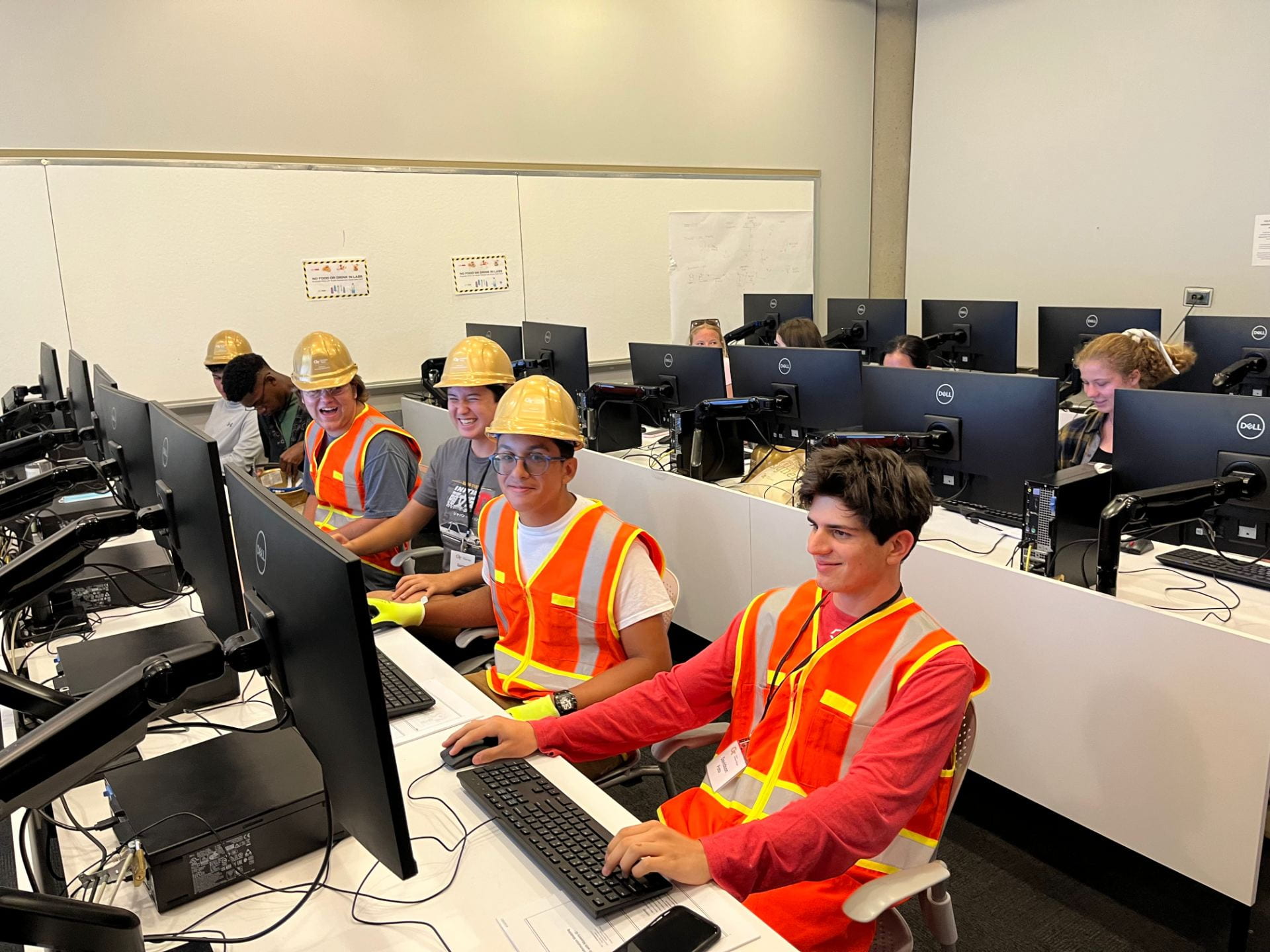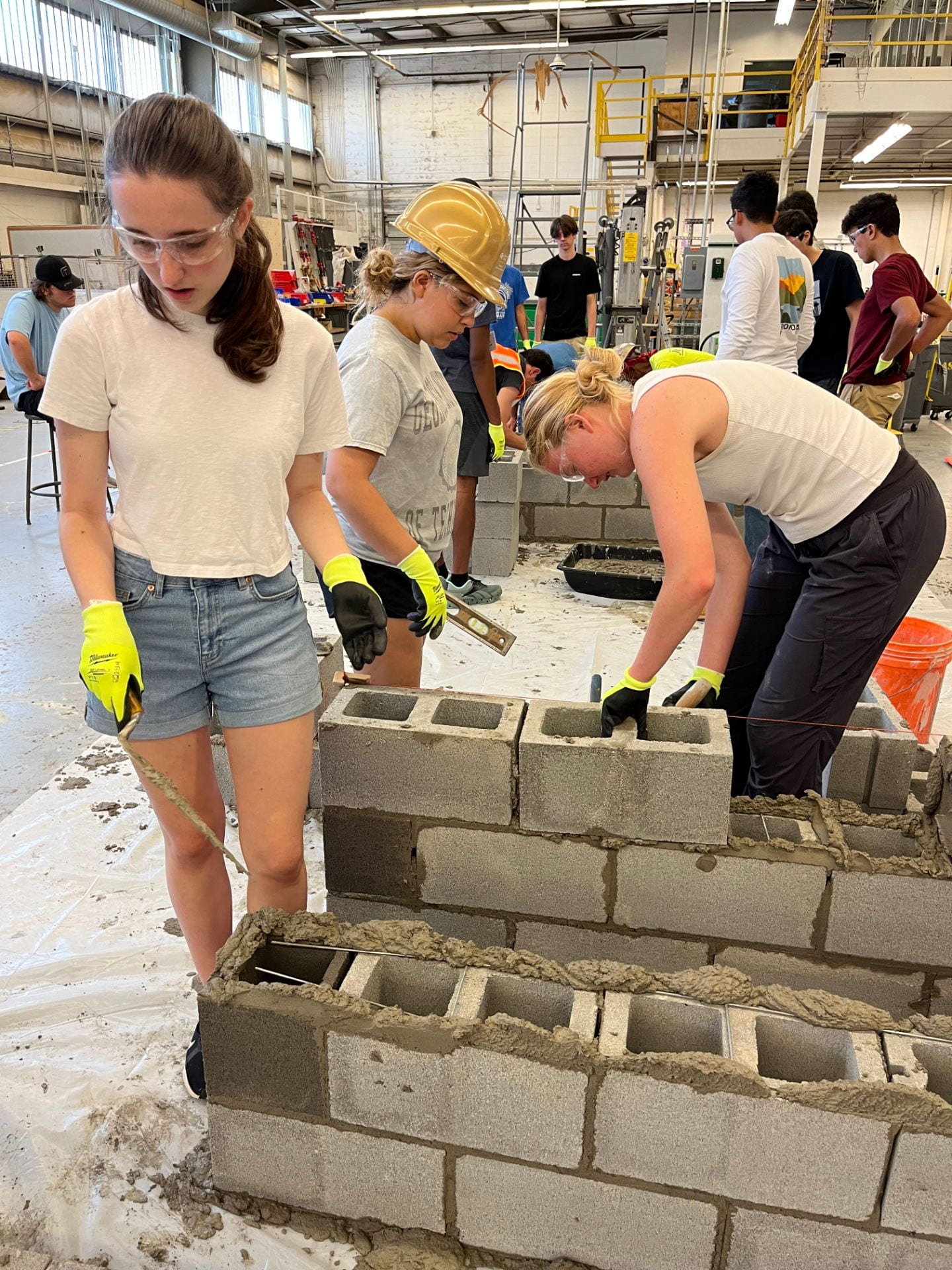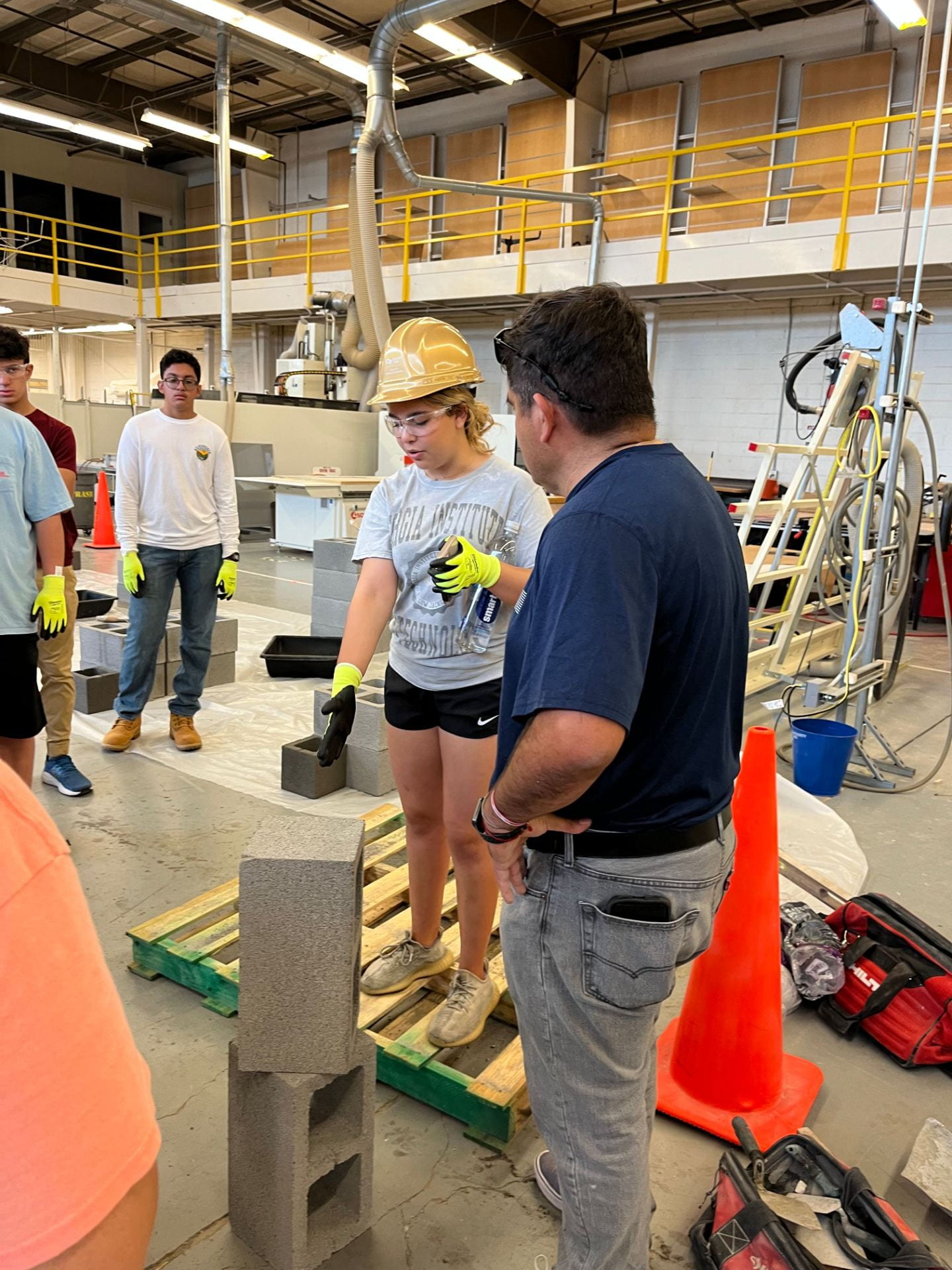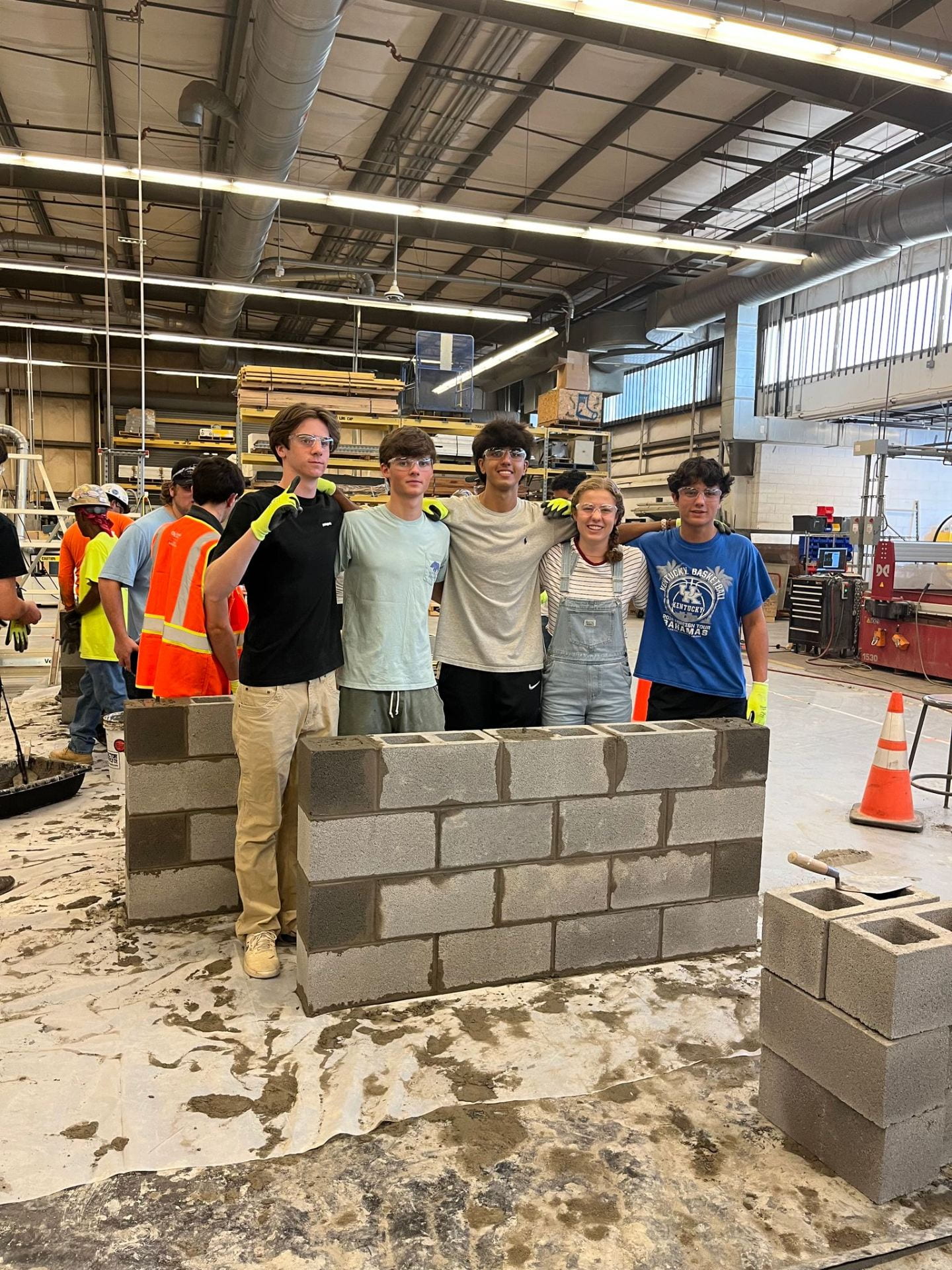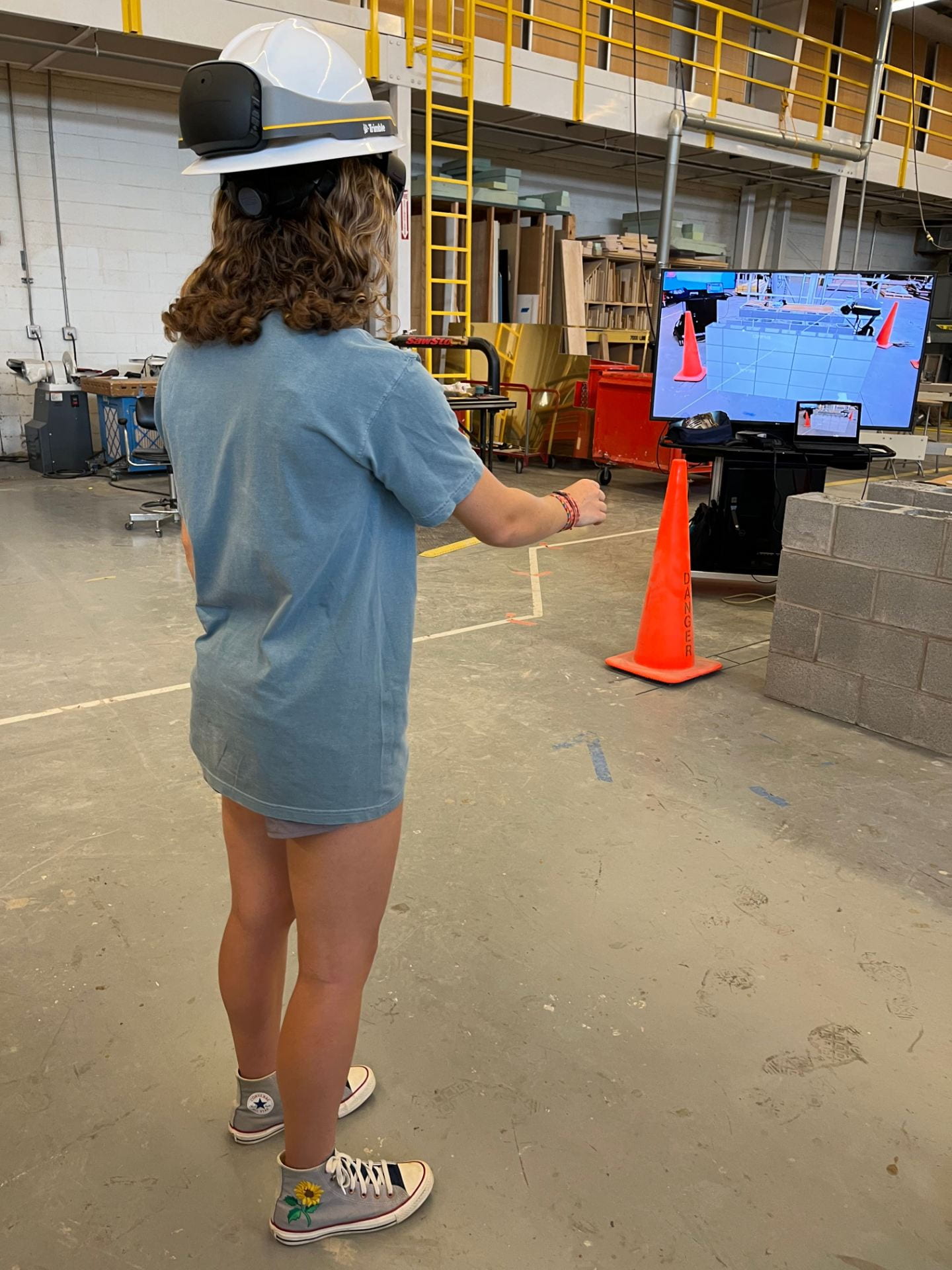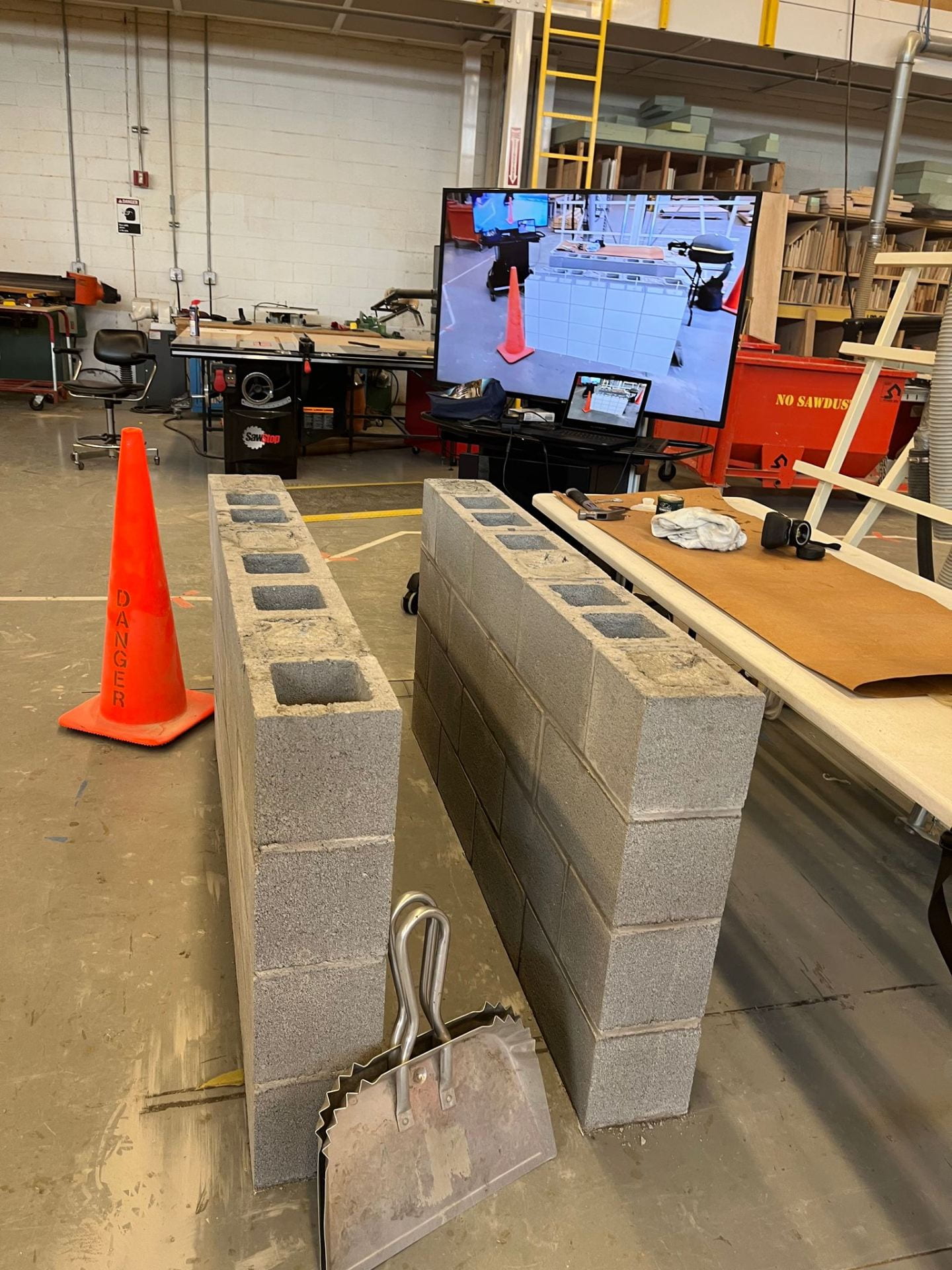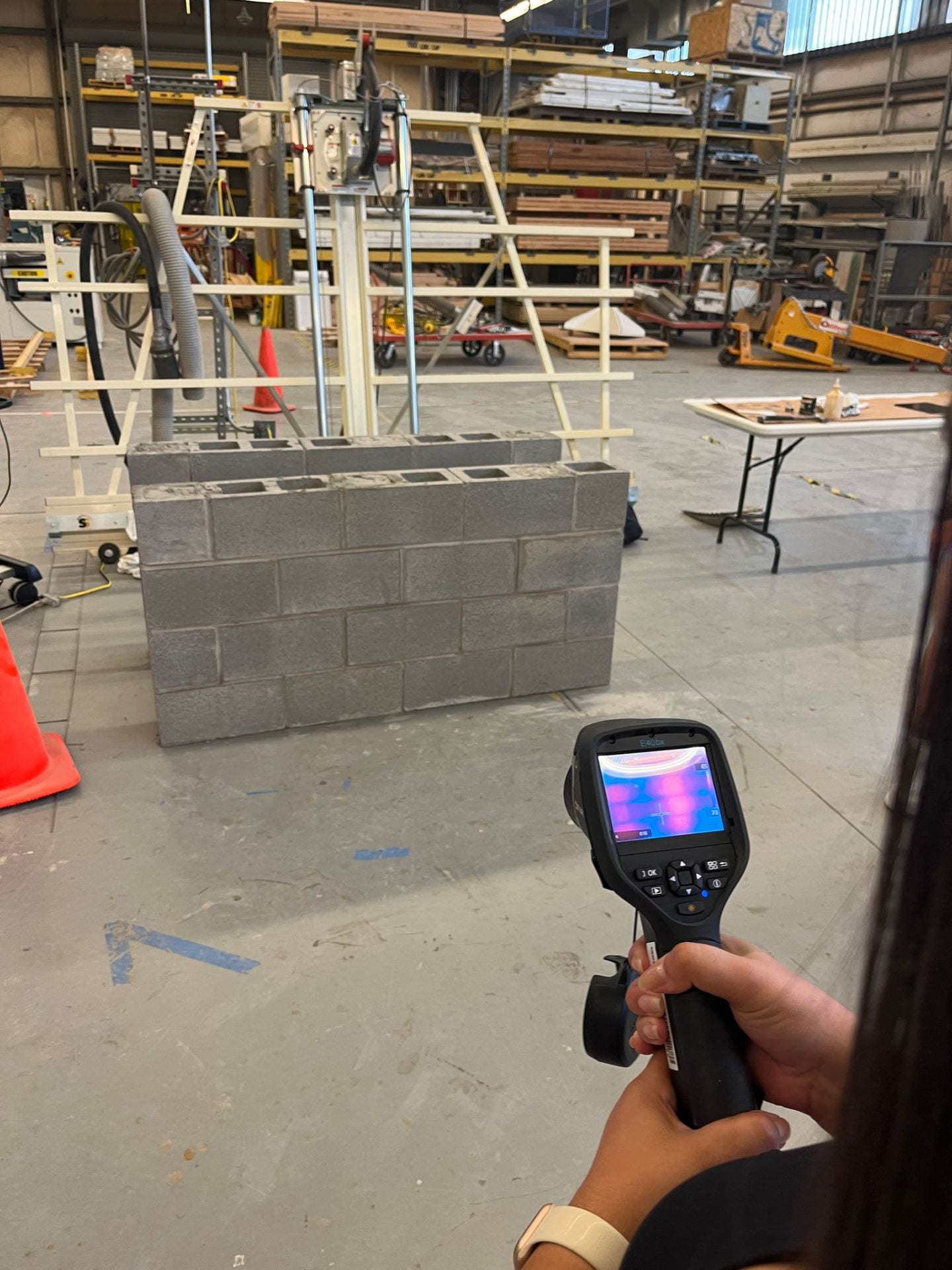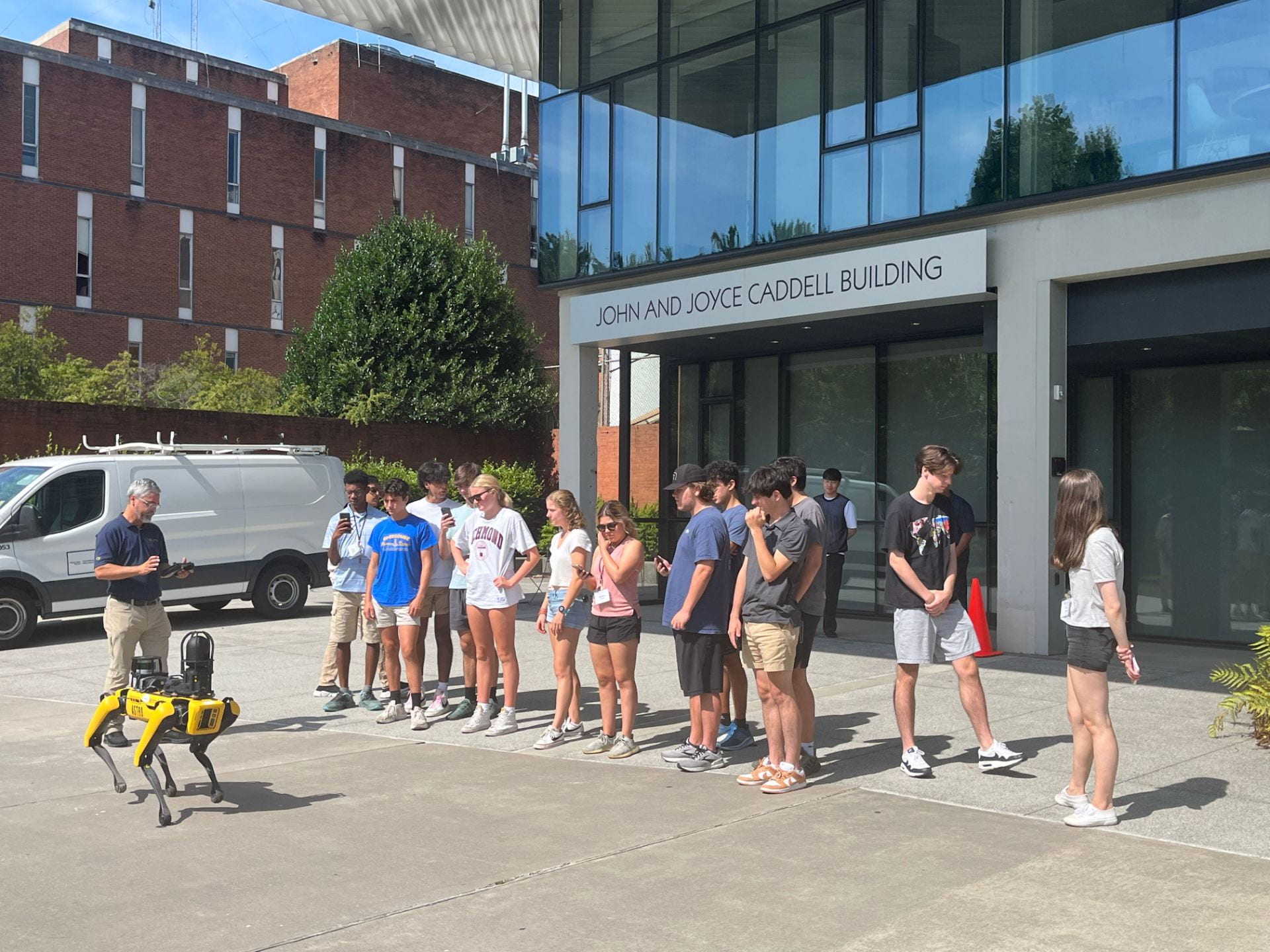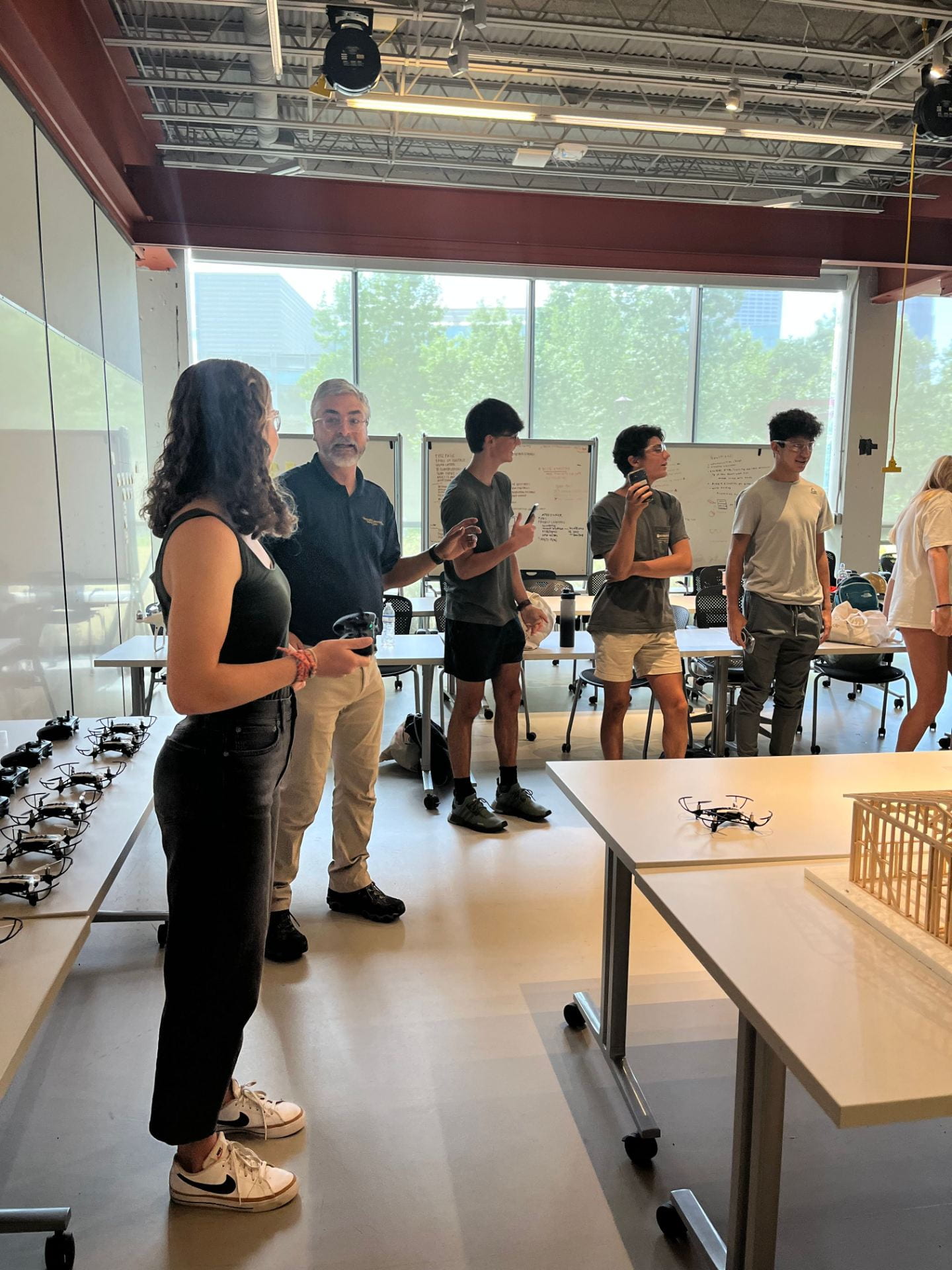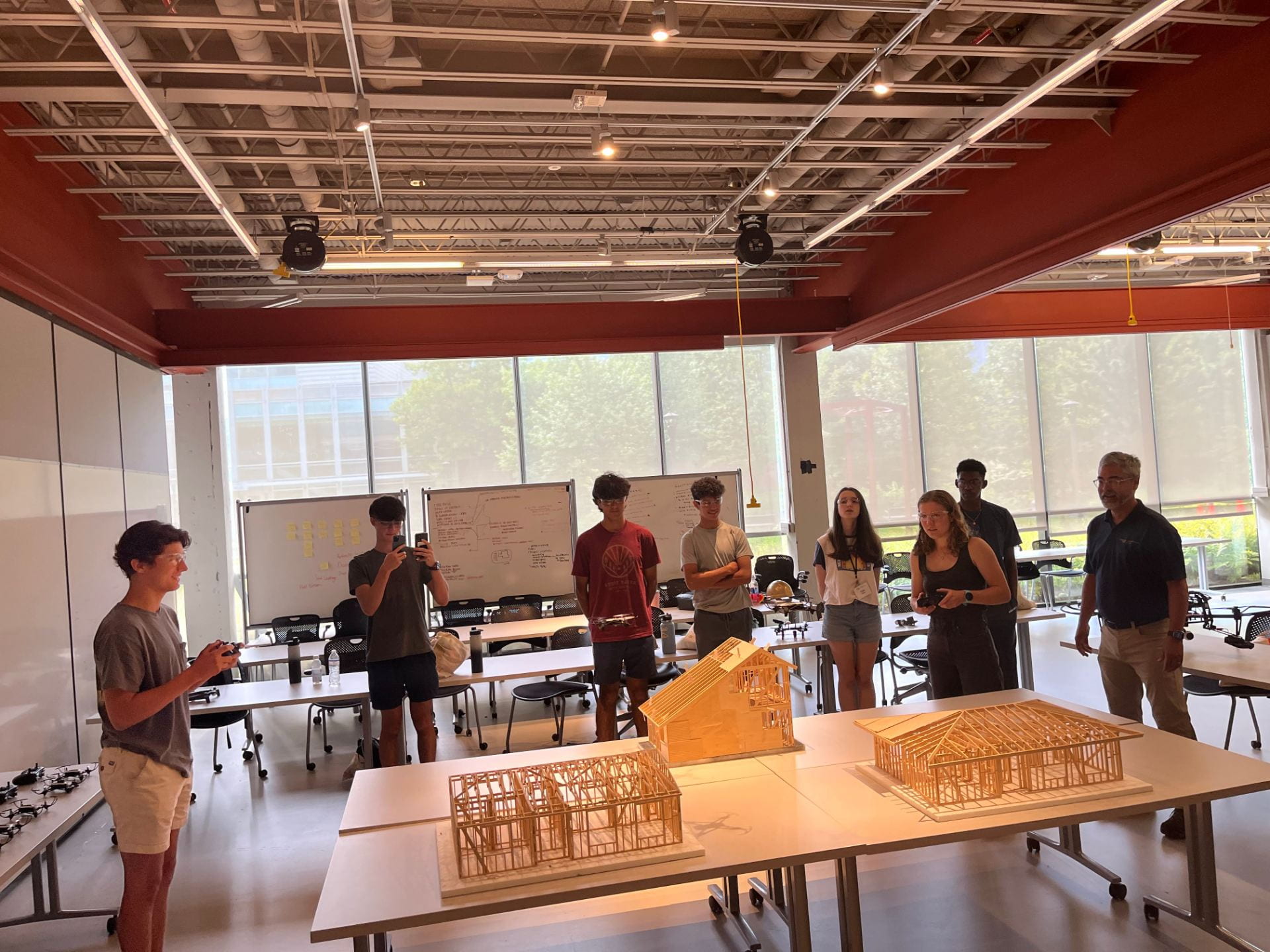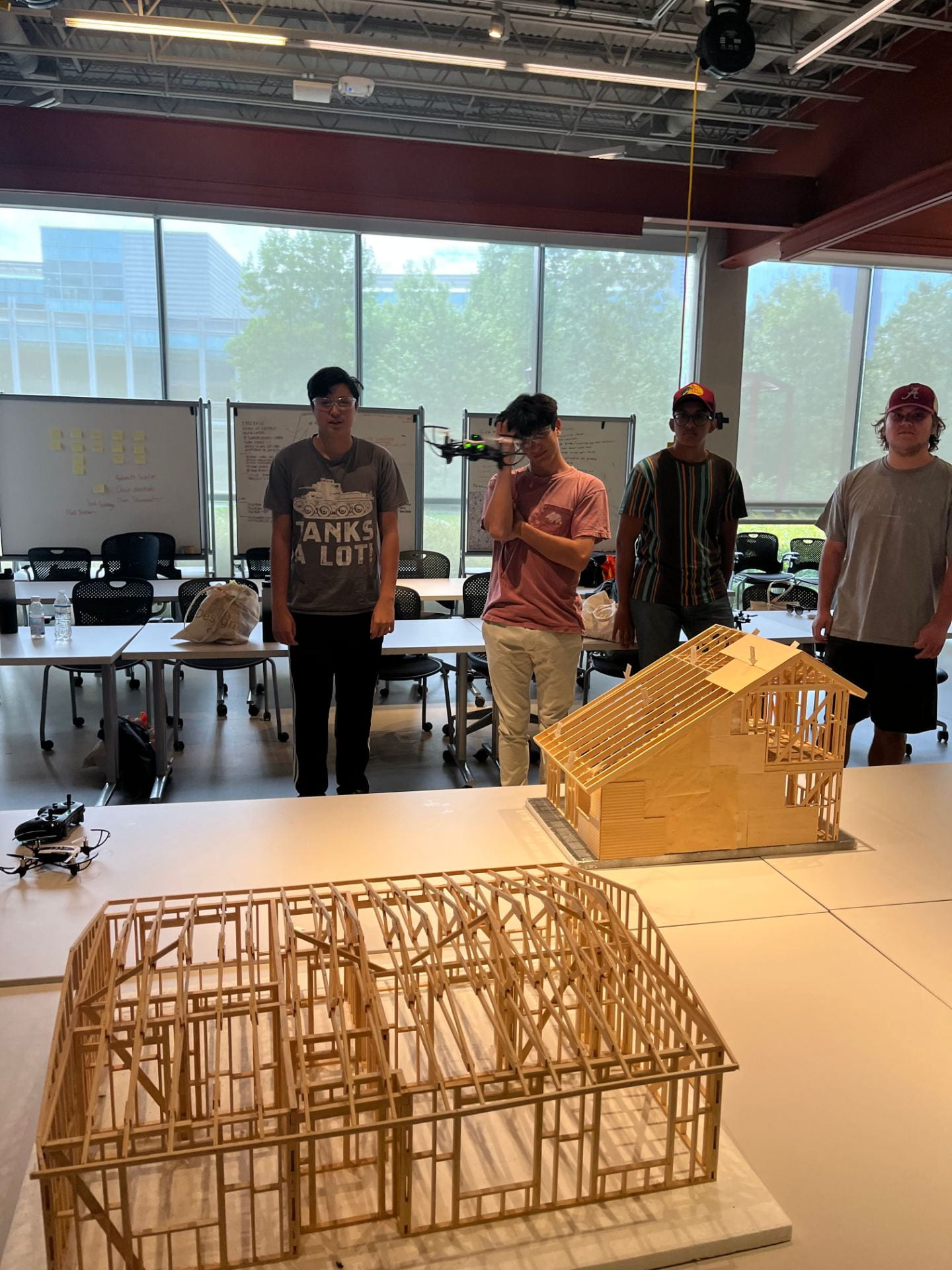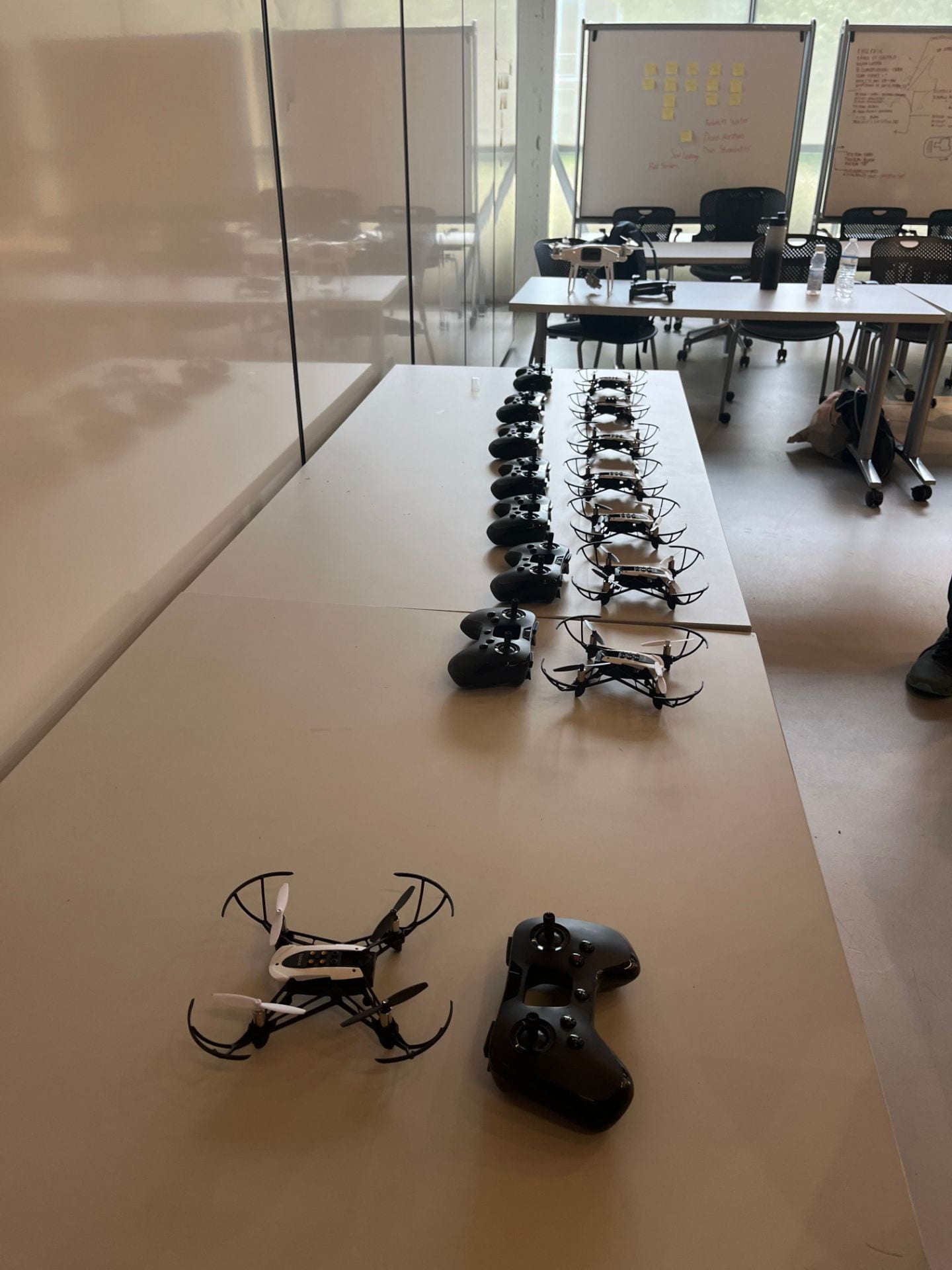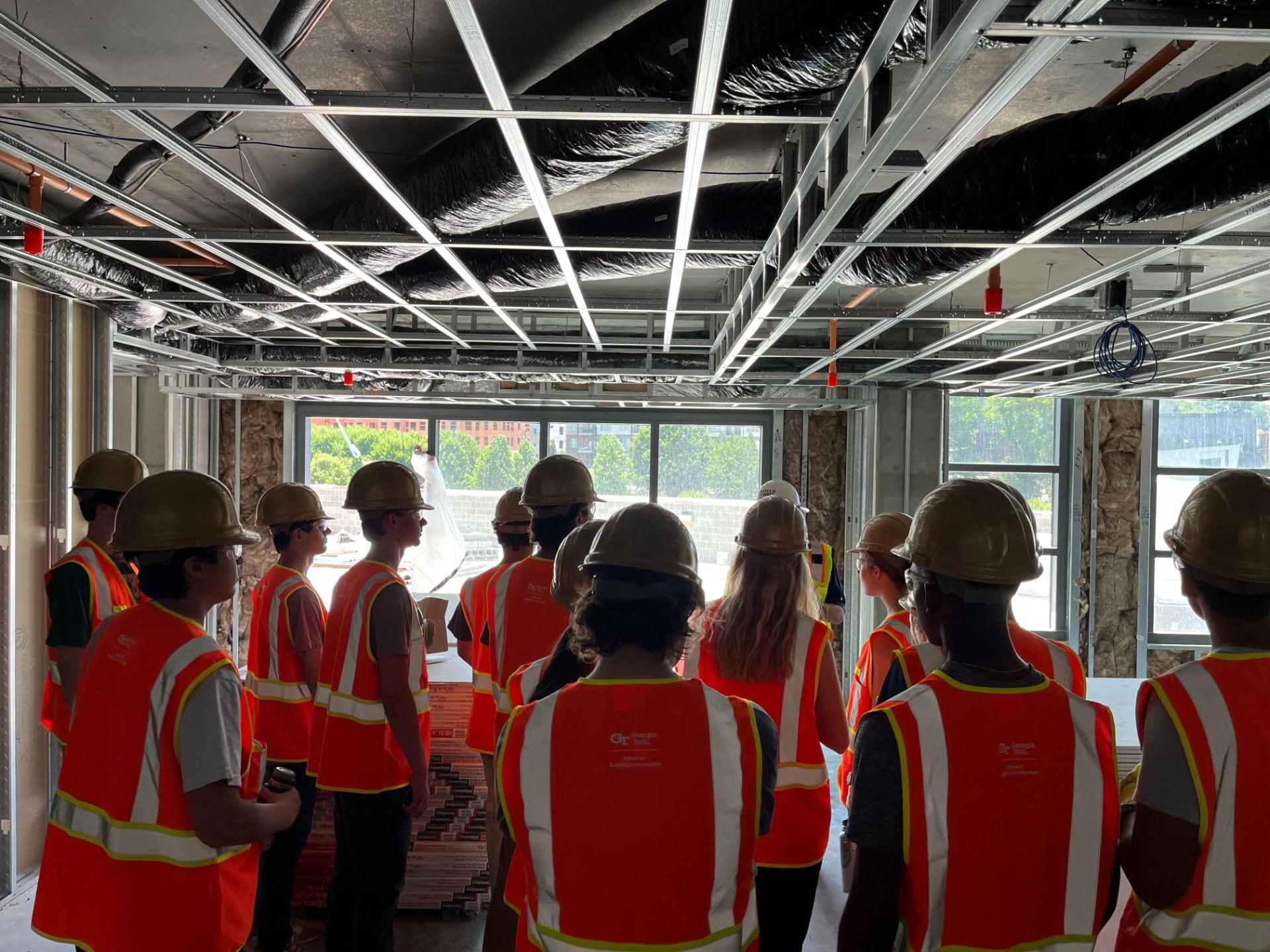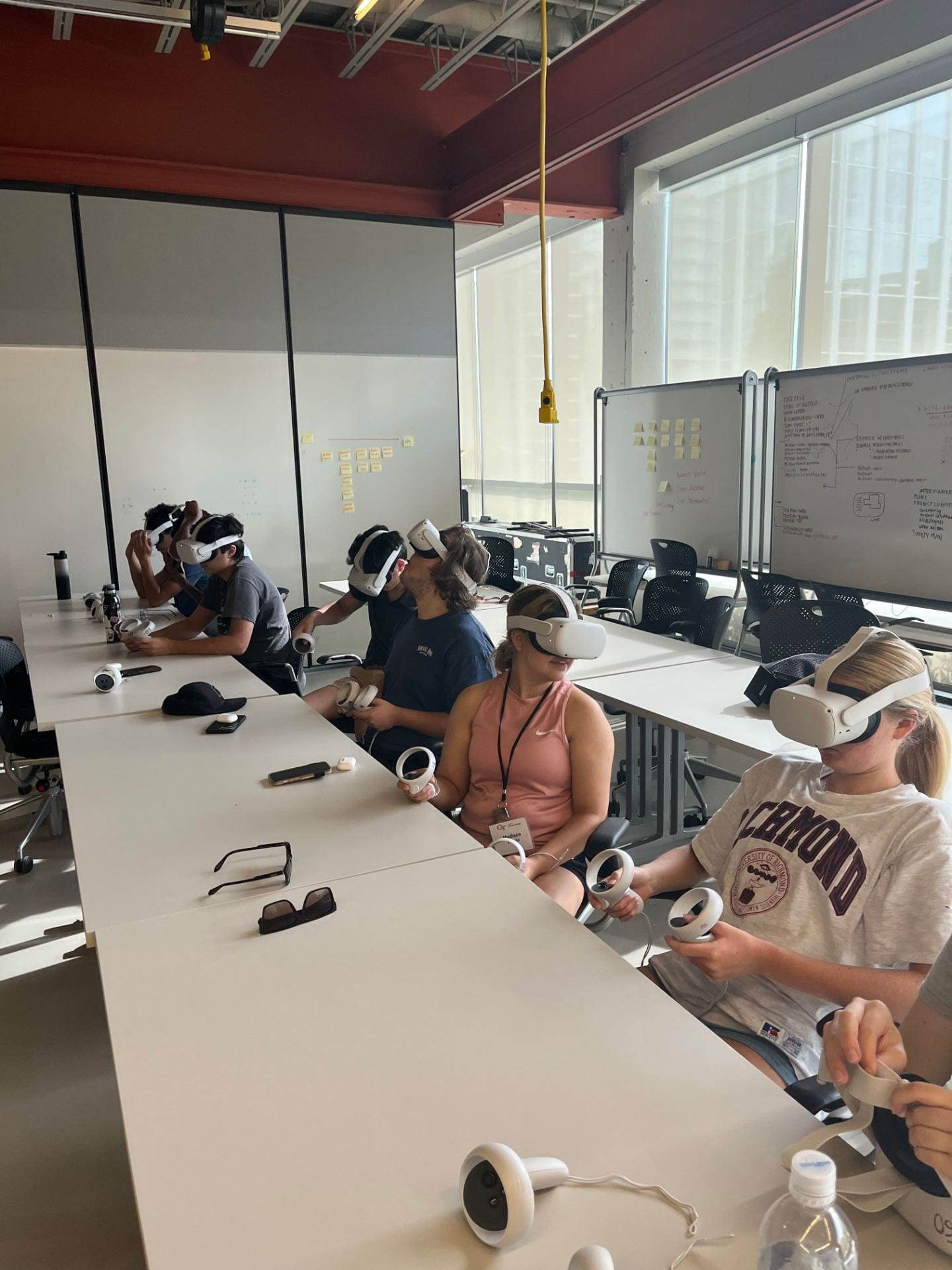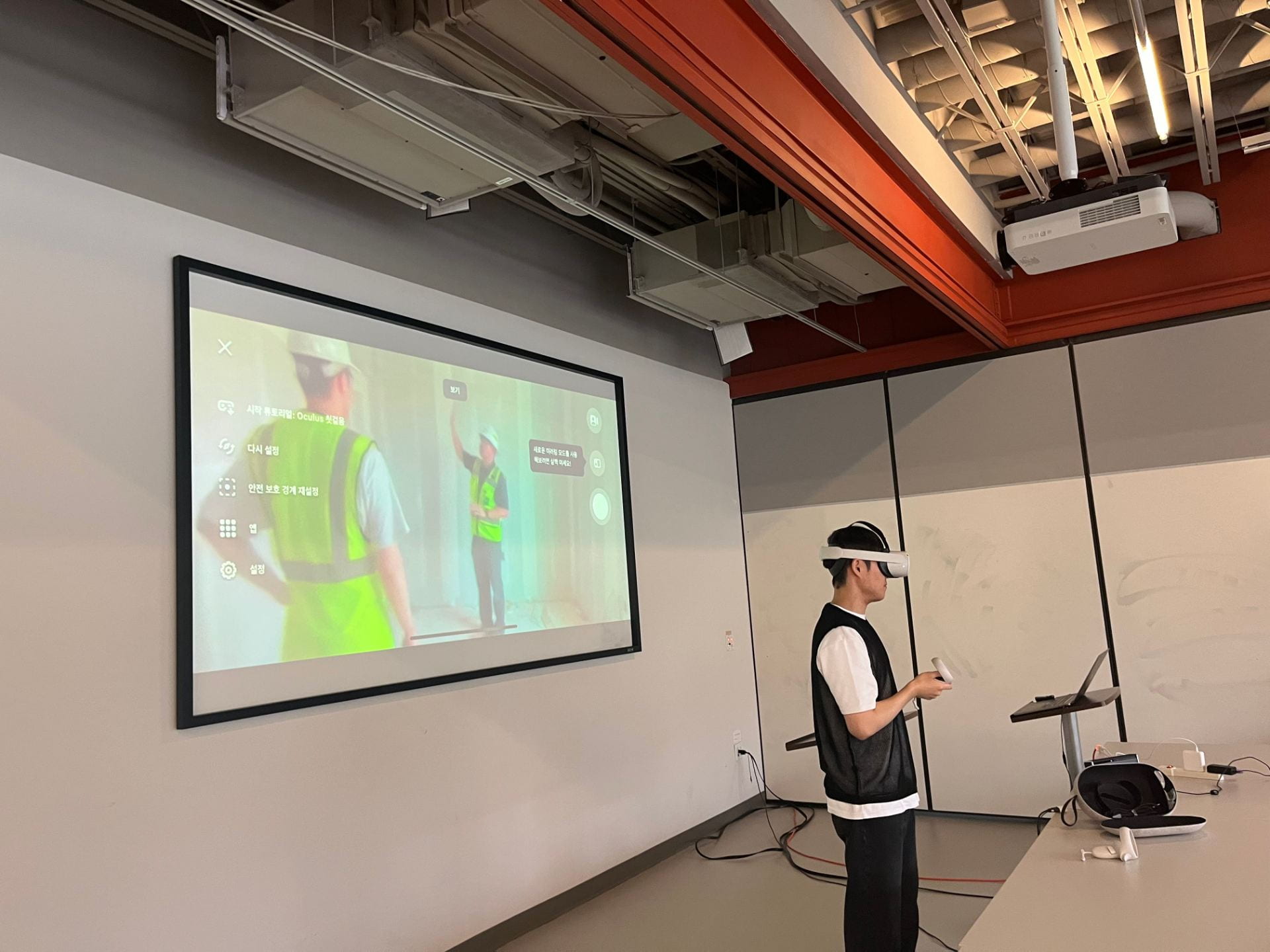Amplify Momentum Project
(GT-AMP) Grant recipients
Enhancing Student Self-Awareness, Resilience, and Engagement through Strengths-Based Learning
Co-PIs: Mary Lynn Realff, Lacy Hodges, and Christie Stewart
This GT-AMP grant expands student engagement through integration and expansion of Strengths-based practices in two AACU High Impact Practice areas: undergraduate research and the first-year seminar. Additionally, it will expand the APPH 1060: Flourishing: Strategies for Well-Being and Resilience course that we developed to enable more students to focus on these aspects of health and well-being and benefit from the course. It builds on the Effective Team Dynamics Initiative (ETD), which has taught Tech students how to identify and apply their strengths, how to build resilience and thrive, and how to make purposeful choices in their pathways through Tech.
Our grant focuses on three key areas of the Momentum Approach Goals: 1) heightening academic engagement and momentum through high-impact practices; 2) creating and cultivating productive academic mindsets through promoting well-being; and 3) supporting students in making purposeful academic and career choices. Our approach to these goals is aligned with the GT’s Amplify Impact Moving into Action strategies, including: 1) ensure that all students are prepared for career success and impact; 2) infuse STEM disciplines with arts, humanities, and social sciences; and 3) strengthen the curriculum in areas that support the U.N. Sustainable Development Goals and specifically, “healthy lives and well-being”.
Year 1 Outcomes (July 2022)
This GT-AMP grant has supported enhanced student engagement through integration and expansion of Strengths-based practices in two AACU High Impact Practice areas: undergraduate research and the first-year seminar. Additionally, it has expanded the APPH 1060: Flourishing: Strategies for Well-Being and Resilience course. It builds on the Effective Team Dynamics Initiative (ETD), which has taught Tech students how to identify and apply their strengths, how to build resilience and thrive, and how to make purposeful choices in their pathways through Tech.
Our approach aligns with the GT’s Amplify Impact Moving into Action strategies, including: 1) ensure that all students are prepared for career success and impact; 2) infuse STEM disciplines with arts, humanities, and social sciences; and 3) strengthen the curriculum in areas that support the U.N. Sustainable Development Goals and specifically, “healthy lives and well-being”.
Overall, we have met our six-month goals outlined in our project plan for two of the three focus areas (first-year seminar and wellness course). For the third area, we shifted focus to test our training materials before expansion of the research scholars program. We expect that we will meet of the goals that we outlined in the proposal during the last 12 months of the grant.

Shown in the photo from left to right: Kelli Rockwell, Gerome Stephens, Caroline Dotts, Mary Lynn Realff, Christie Stewart, Kerry Wallaert (not shown Lacy Hodges).

Students in EAS4420 Environmental Field Methods on field trip to Skidaway Island (Photo by Martial Taillefert)
Developing a New Multi-Disciplinary Major in the Environmental Sciences
Jean Lynch-Stieglitz, Associate Chair and Professor, School of Earth and Atmospheric Sciences
Jennifer Kraft Leavey, Assistant Dean, College of Sciences and Principal Academic Professional, School of Biological Sciences
This project will support the development of a new College of Sciences interdisciplinary degree program in Environmental Science. Environmental Science draws on the biological, chemical, and physical sciences to better understand the Earth’s environment and human impacts upon it. This program will produce scientists empowered to address global challenges. The major will be designed to allow students from a diversity of academic backgrounds to thrive through a broad course of study including both natural and social sciences. It will support the USG Momentum Approach goals by providing a clear and flexible curricular framework that will encourage engagement and on-time degree completion for all students, including transfer students and those changing majors after arriving at Georgia Tech.
Understanding the interactions between humans and the natural systems that support them is a key underpinning of education for sustainable development (ESD) and is an inherently transdisciplinary endeavor. The major will support the Amplify Impact focus area of Georgia Tech’s strategic plan by strengthening the curriculum in areas that support the U.N. Sustainable Development Goals (SDGs) and by creating a new multidisciplinary curricular pathway.
Year 1 Outcomes (July 2022)
Faculty from the Schools of Earth and Environmental Sciences and Biological Sciences are jointly developing an interdisciplinary undergraduate Environmental Science degree program in the College of Sciences. The program was developed and refined over the last year, and is now being considered for approval by the University System of Georgia. The program is designed to allow students from a diversity of academic backgrounds to thrive through a broad course of study including both natural and social sciences.
It will support the USG Momentum Approach goals by providing a clear and flexible curricular framework that will encourage engagement and on-time degree completion for all students, including transfer students and those changing majors after arriving at Georgia Tech. Understanding the interactions between humans and the natural systems that support them is a key underpinning of education for sustainable development (ESD) and is an inherently transdisciplinary endeavor. The major will support the Amplify Impact focus area of Georgia Tech’s strategic plan by strengthening the curriculum in areas that support the U.N. Sustainable Development Goals (SDGs) and by creating a new multidisciplinary curricular pathway.
Science and Society Internship Program
Christopher M. Stanzione, Senior Lecturer, Associate Chair of Undergraduate Studies, School of Psychology
The School of Psychology is creating a Science and Society Internship program. The program includes three tracks: 1) International Experience, 2) Virtual Experience, and 3) Local Impact, with the goal to help support students achieve full momentum towards graduation and their post-graduate career, improve academic engagement, and deepen purposeful choices for their careers in a global world. Secondly, our program helps to serve Georgia Tech’s strategic vision as we mobilize our partnerships for moving into action. These internships will offer students practical experience to ensure they are prepared for career success, and offer the School an opportunity to develop educational programs that will meet emerging market needs.
We’ve also designed a mentoring experience within the Internship program between graduate and undergraduate students, which we believe will offer unique applied and academic views during the experience. We’ve designed the program in a way to meet the needs and strengthen the undergraduate experience, increase our network of companies and partners, and improve the visibility of our program.
Year 1 Outcomes (July 2022)
The Science & Society Internship program has made great progress since receiving GT-AMP funding: (1) One of the goals of our program is to help students make degree progress while also gaining real-world experience while on internship. As of today, a new course has been submitted and approved by the GT IUCC: PSYC 2695/4695 INTERNSHIP. This course allows students to enroll in 1, 2 or 3 credit hours of free electives towards their degree while working in the internship site.
The course is overseen by Dr. Christopher Stanzione, Associate Chair for Undergraduate Studies, which includes a syllabus and written deliverables throughout the term. (2) An internship handbook was created to describe the program in detail. (3) An online application portal was developed to streamline applications. (4) New infrastructure is installed to enable hybrid/online internships. (5) Five undergraduate students have already completed their internships and 30 internship opportunities have been created for the next two semesters. (6) As an expansion of the Science & Society Internship Program, 8 high-school students were hosted over the summer for research experience. With the goal of scaling the program, we are working closely with James Stringfellow, Career Educator for the College of Sciences, to meet benchmarks described in the original application.
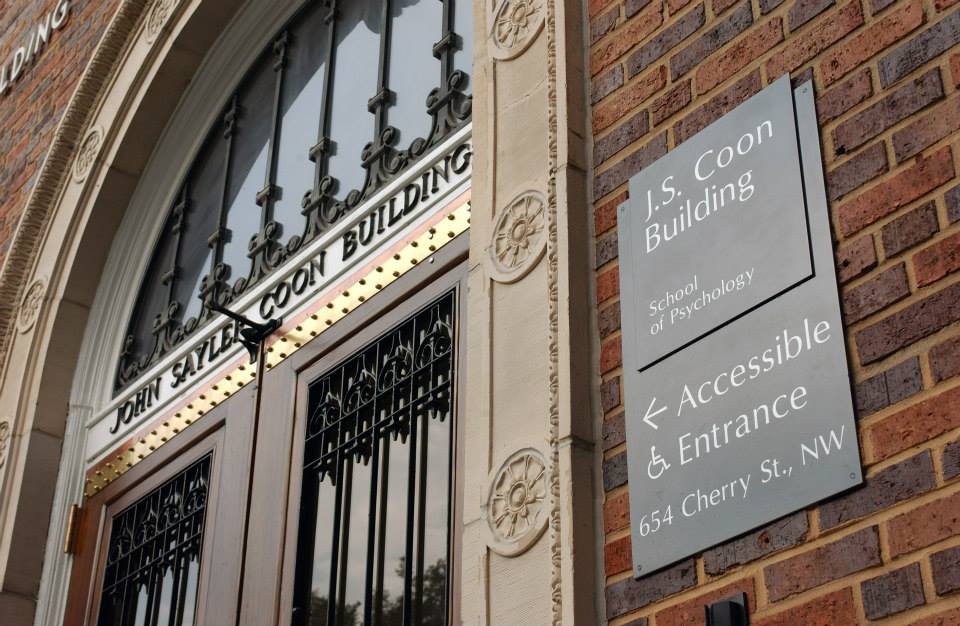

Integrating Growth Mindset to JumpStart our Georgia Tech Student-Athletes
Christopher J. Breen, Office of Student Services, Georgia Tech Athletic Association
The Georgia Tech Athletic Association is excited to have the opportunity to expand upon their growth mindset programming not only for their first-year transition program, Jumpstart Jackets, but at additional opportunities throughout the student-athletes journey at Tech. The goal of this expanded program would be to infuse this momentum/mindset into all practices within our day-to-day practices including but not limited to midterm advising, graduation planning, coach communication, coach education and developing everyday champions.
This expanded program would “move into action” the need to “create and cultivate productive academic mindsets” to align with USG Momentum Summit goals. Equipping our student-athletes with a growth mindset instills in them the tenacity to face the Georgia Tech academic thrive culture head on. By infusing a growth mindset culture in our everyday processes, our staff will reinforce the concepts during each step of a student’s journey through Tech. As we commence from the last 18 months of the COVID-19 pandemic, Georgia Tech students need a growth mindset more than ever. This program is in direct response to the feedback from faculty and evaluation of our student-athletes needs that have emerged as it relates to in-person, synchronous, and asynchronous courses. Students, especially student-athletes, have had to redefine their approach to academic success.
Year 1 Outcomes (July 2022)
With the opportunity provided by the GT-AMP grant funding, The Georgia Tech Athletic Association expanded its Jumpstart Jackets transition and acclimation programming for their first year and transfer student-athletes to include presentations on Growth Mindset facilitated by Samantha Gilmore, Mental Performance Coordinator for New York Mets. Based on feedback from Qualtrics surveys, student-athletes reported feeling “anxious, excited, nervous” prior to attending the session on Growth Mindset during Jumpstart Jackets. After completing the programming, student-athletes reported feeling “ready, eager, prepared”, which is direct result of the Jumpstart Jackets programming.
Additionally, our GTAA academic staff participated in two sessions of growth mindset training. The topics delivered included approaching the individual person first, motivating student-athletes to encourage commitment to education, working with fear of failure, motivational interviewing, and teaching skills to support mental performance.
Library Interactive Media Cross-Disciplinary Workshop
Stuart Romm, AIA, LEED AP, Professor of Practice & Hunter Spence, AIA, Lecturer, College of Design, School of Architecture
Co-Curricular Workshop Course ARCH 8833/4844 – ID 4823 Spring 2022 (Credits: 3 semester hours)
This Amplify Momentum Project (GT-AMP) is centered around a unique pilot program for creating new multidisciplinary curricular pathways for Georgia Tech students and researchers. This first iteration, a spring 2022 workshop course across multiple schools in the College of Design will be a collaborative opportunity for Architecture, HCI, ID, Digital Media, Music Technology, & CS students to research, conceptualize, and rapid-prototype implementable designs for impacting their own campus. The sites of exploration are 2 pioneering interactive media environments at truly beacon locations in the renewed GT Library: its Media Bridge and Interactive Zone. This initiative will begin the transformation of this historic campus crossroad into a real-world laboratory for re-inventing the future of public space through creative digital engagement and interactivity.
This unique course experience for hands-on learning affords students a rare and much sought-after opportunity to help build their own world in a mode of community service. It is conceived within a larger framework of recent cross-disciplinary workshop courses initiated in the College of Design, such as the 2019 Digital Fabrication Lab Workshop led by Professor of the Practice, Stuart Romm. That workshop resulted in the recently completed Library Bridge seating being prototyped, fabricated, and installed by the design students themselves.
Year 1 Outcomes (6-month project, completed July 2022)
The GT-AMP funded Interactive Media Workshop was a co-curricular Spring 2022 course intended to be a pilot opportunity for creating new multidisciplinary curricular pathways for Georgia Tech students and researchers. This first iteration, a workshop course across multiple schools in the College of Design was a collaborative opportunity for Architecture, Industrial Design, Digital Media, and Music Technology students to research, conceptualize, and rapid-prototype implementable designs for impacting their own campus. The site of exploration was the pioneering interactive media environment at the Georgia Tech Library Media Bridge. This workshop contributed to the transformation of this historic campus crossroad into a real-world laboratory for re-inventing the future of public space through creative digital engagement and interactivity.
This unique course experience for hands-on learning afforded students a much sought-after opportunity to help build their own world in a mode of community service. The four cross-disciplinary student teams researched emerging technologies to develop interactive media prototypes, which were demonstrated in a public presentation to the Deans of the Library and College of Design, as well as the current and former Georgia Tech Provosts. These projects successfully piloted, for continuing workshops to carry on, unique possibilities of multi-sensory architectural environments that intersect both physical and virtual experiences into a new generation of interactive public space.

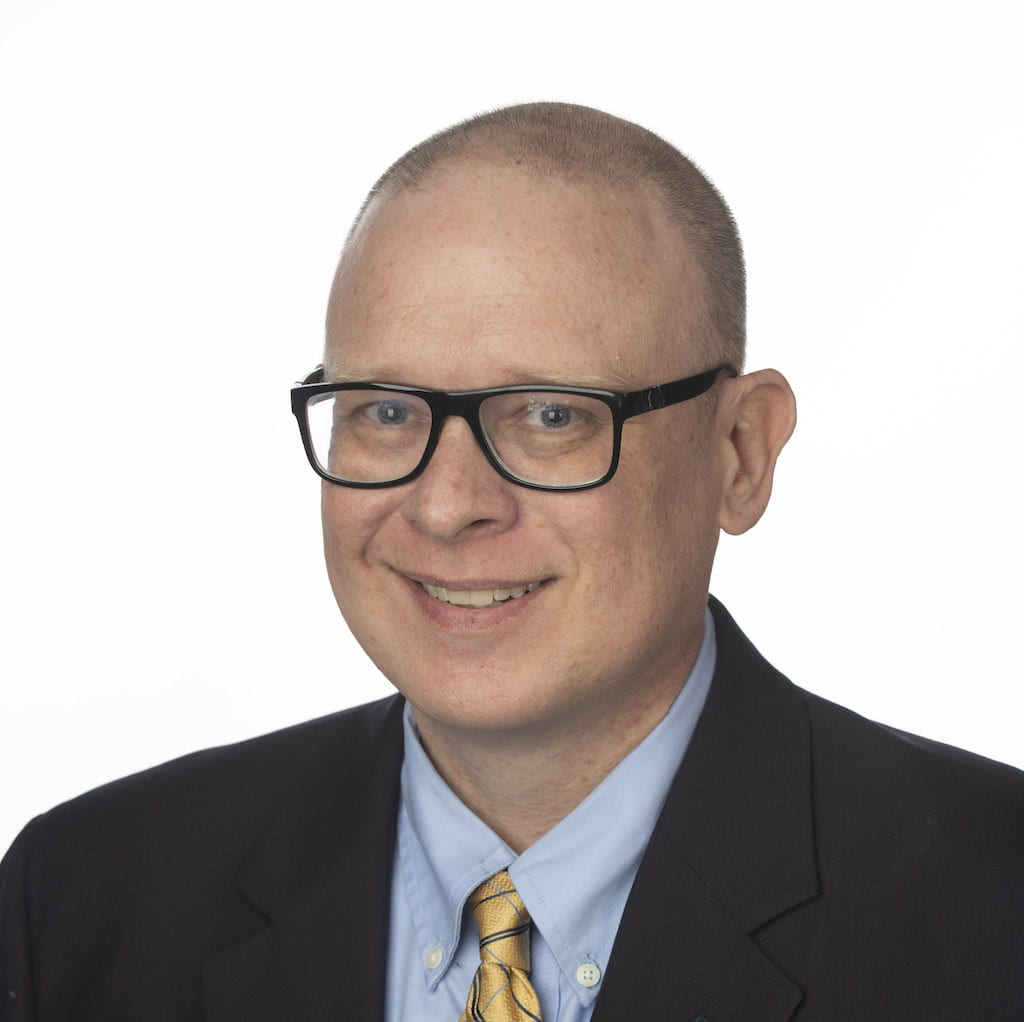
Dr. Andy Frazee, Director, Writing and Communication Program
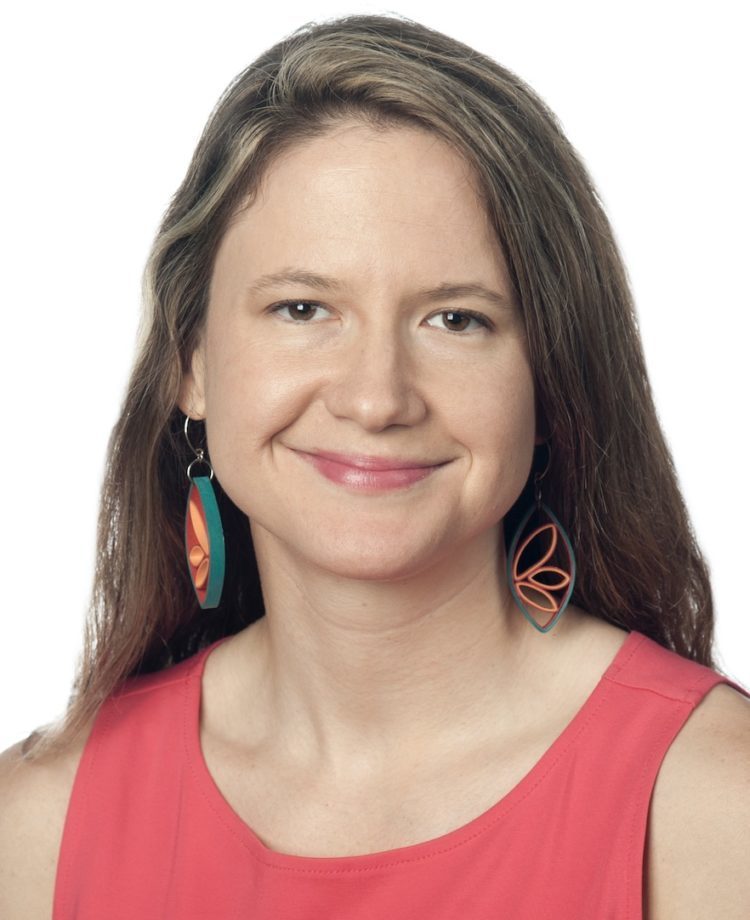
Dr. Ruthie Yow, Service Learning and Partnerships Specialist, Center for Serve-Learn-Sustain
Public Interest Technology (PIT) for First-Year Engineers
Dr. Andy Frazee, Director, Writing and Communication Program
Dr. Ruthie Yow, Service Learning and Partnerships Specialist, Center for Serve-Learn-Sustain
“Public Interest Technology (PIT) for First-Year Engineers,” a collaboration of Serve-Learn-Sustain and the Writing and Communication Program, connects first-year engineers to community-based experiential learning themed around technology for the public good. The project will heighten academic engagement through the inclusion of service-learning experiences with community partners; help students make and deepen purposeful choices by exposing them to organizations and careers in public interest technology; and support students in maintaining momentum along a clear pathway through offering them opportunities to extend their PIT learning through other courses in their major that draw on PIT materials, case studies, and partnerships.
The proposed initiative brings together 4 community partners, 4 Brittain Fellows in the Writing and Communication Program (WCP), and 4 CoE faculty members. These collaborators will collaboratively design two deliverables: a PIT- and service-learning-infused syllabus appropriate for all first-years, but of particular interest to CoE students and a suite of course modules with specific disciplinary emphases to be used in major-specific sections of ENGL 1101 and ENGL 1102. This project more broadly advances the incorporation of community engagement into the College of Engineering curriculum and the equipping of engineering students to be change agents at GT and in their lives after graduation.
Year 1 Outcomes (July 2022)
During Year 1, the “Public Interest Technology for First Year Engineers” program selected four Brittain Fellows for the project, met biweekly during Spring 2022, convened engineering faculty and partners in a co-creation session focused on identifying themes for pilot sections, finalized syllabi for those courses, and piloted four community-partnered sections of ENGL 1102.
During Summer 2022, the project team met weekly to discuss key takeaways and begin to envision how the compressed format of the summer term would be extended into the conventional 12-week format for Fall 2022, when Brittain Fellows will continue to work with their community partners and their public-interest-technology-themed sections will be restricted to engineering majors.
Accessible Construction Education through Virtual/Augmented Reality Discipline Explorations (ACE-VADER)
Ece Erdogmus, Pardis Pishdad-Bozorgi, Javier Irizarry (School of Building Construction)
Maureen Linden and Zerrin Ondin (Center for Inclusive Design and Innovation)
Ben Kreimer (Creative Technologist)
This Amplify Momentum Project leverages the latest technologies utilized in the construction field and construction education, including Augmented and Virtual Reality, Building Information Modeling (BIM), and drone-based visual inspections; to create experiential teaching modules for students of all abilities at a pre-college summer camp. The ACE-VADER modules will use device-agnostic, accessible, and experiential activities to help students visualize themselves as future construction professionals. The modules will be designed with utmost care to help all students, including those with disabilities, to consider construction as a viable choice of major and/or to deepen their interest in this field through experiential learning opportunities. Similarly, the off-site augmented and virtual reality-enhanced activities will present virtual Construction Management, or Building Information Modeling Management (BIM-M), as exciting career paths for students who may have not previously considered these professions.
The ACE-VADER modules, and pre-college camp curriculum developed from this project, will strengthen Georgia Tech’s efforts to recruit students for the recently revitalized Bachelor of Science in Building Construction degree program (BSBC). This project’s initiatives target the following Momentum Approach goal: “Make and deepen purposeful choices, regarding choice of major or career path, or regarding choice of experiential learning opportunities.” Furthermore, it addresses the following areas of the Georgia Tech Strategic Plan: Amplify Impact and Expand Access.
Year 1 Outcomes (July 2022)
A curriculum for a pre-college summer camp was developed and offered for the first time to fifteen students in June 2023. The camp curriculum included: 1) Building Information Modeling (BIM)-enabled pre-construction processes, 2) Hands-on construction and quality-control using AR and infrared technologies, 3) Practice with emerging technologies in construction, and 4) Industry Interactions.
The campers designed a wall in REVIT and utilized 4D simulation to create a schedule and cost estimate for its construction. Then, the students built the walls and compared the as-built structure with their models using Augmented Reality technology. In the third module, the students experienced various emerging technologies, such as a construction robot dog, drones and mini drones, laser scanning, and 3D printing. Industry guest speakers, an office visit, two actual construction sites, and a virtual site visit using Virtual Reality provided opportunities to understand the daily operations of this career. The virtual site visit was pre-recorded by the research team using a 360 camera. Pre- and post- surveys were conducted. During the final presentations and on the surveys, the students reflected on what a professional career in construction really entails and that they are excited about this career choice than before.
Figure 1. Lab session on BIM-Enabled Construction Processes
Figure 2. Student Work from the BIM Session
Figure 3. Students constructing their previously designed masonry walls
Figure 4. Use of AR in Quality Control and Comparison of REVIT Model to As-Built Walls
Figure 5. Students Interacting with Robot Dog
Figure 6. Hands-on Practice of Drone Operations
Figure 7. Images 1 & 2: Actual Site visit, Images 3 & 4: Virtual Site Visit





